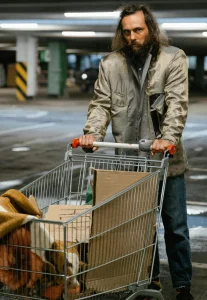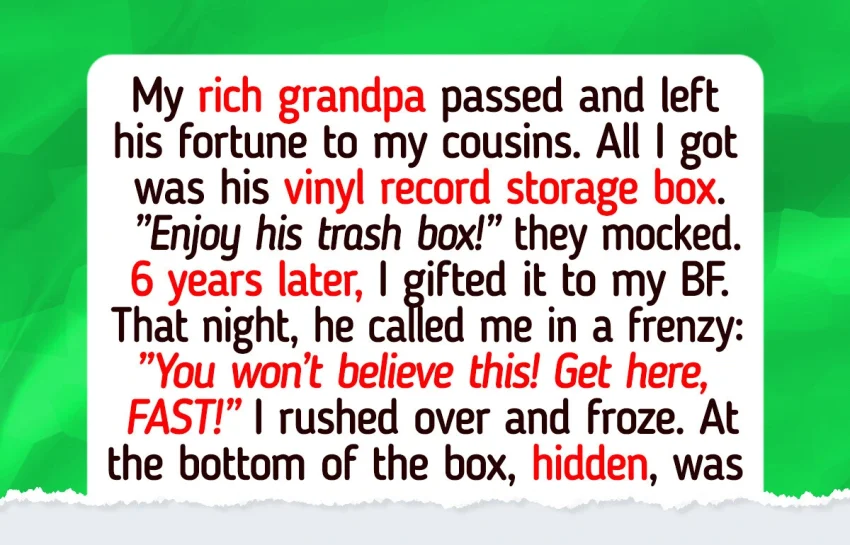Society often celebrates money and influence, but it’s kindness that carries the power to heal. A simple gesture can ease pain more deeply than riches ever could, reminding us that true strength often works in silence, leaving lasting impressions.
My ex-husband left me for his secretary and fought me for every penny in the divorce. Two years later, I saw him at the grocery store, looking defeated, counting coins for food. His new wife had left him with their infant.
I quietly paid for his groceries and walked away. He never knew it was me.

My rich grandpa passed and left all his fortune to my cousins. All I got was his old vinyl record storage box. “Enjoy his trash box!” they mocked me.
Six years later, I gifted it to my boyfriend. That night, he called me in a frenzy, shouting, “You won’t believe this! Get here, FAST!” I rushed over and froze.
At the bottom of the box, hidden, was a brittle envelope. Inside lay a deed to a vault of unreleased master recordings — sessions from jazz greats, blues icons, and rock pioneers. Experts later valued it at hundreds of millions. My cousins thought they inherited wealth, but compared to this, their fortune was pocket change.
Grandpa hadn’t left me trash — he’d left me everything. I cried with relief and joy. I finally knew his love for me was as deep as mine for him.
My sister’s husband cheated on her and left her with three kids and massive debt. When he called asking to borrow money for a place to live, she was furious. But she lent it to him anyway, saying, “My kids need their father to have his life together, even if I can’t even look at him right now.”
My boss fired me right before holidays to hire his nephew. Six months later, I got a better job and was asked to interview candidates. My former boss walked in, desperate and unemployed. I could have humiliated him, but I gave him an honest recommendation for a position at another company.

My roommate moved out in the middle of the night, leaving me with the full rent and a trashed apartment. She also took my security deposit money. A year later, I saw her at the food bank, looking embarrassed. I could have walked past, but I helped her carry groceries to her car and slipped her some cash.
I blamed Mom for being a waitress. Single, she raised us on minimum wage. I studied hard and became a doctor.
At my graduation, I said, “See? I became someone, unlike you! I did not give up on life!” She just smiled and didn’t say a word.
She was ill and died two months later. Under her bed, I found a paper bag with my name written on it. I froze.
Inside, she hid piles of papers. They were records stretching from my high school years in 2014 until recently. Page after page detailed the sacrifices my mother made for my education.
She worked double shifts — waiting tables by day and then secretly cleaning houses at night — just to afford my books or pay for a course.
She came home very exhausted, but I never knew why. In some entries, she even wrote that she would skip meals or delay buying her medication so I could continue in medical school.
I had always taken her for granted, even calling her lazy, while in truth she was the angel who carried me to where I am today. I broke down in tears.
But then I found the final note, written on the night of my graduation: “I am so proud of the woman my daughter has become. I know she is kind deep inside, and every life she saves as a doctor will be like a gift to me, even if I am no longer here.”
Now, all I strive for is to be a good and kind person, and an exceptional doctor — worthy of my mother’s pride, wherever she may be.
